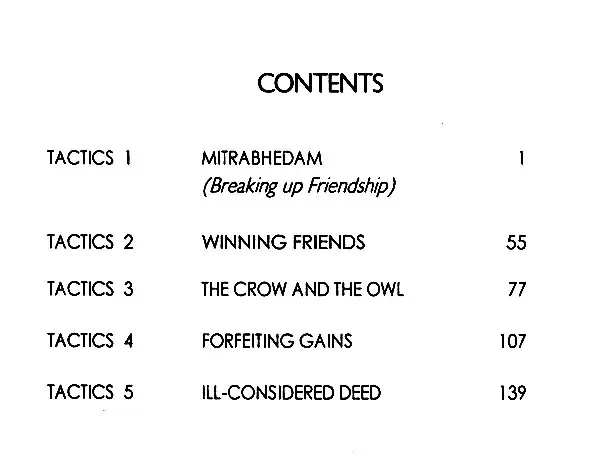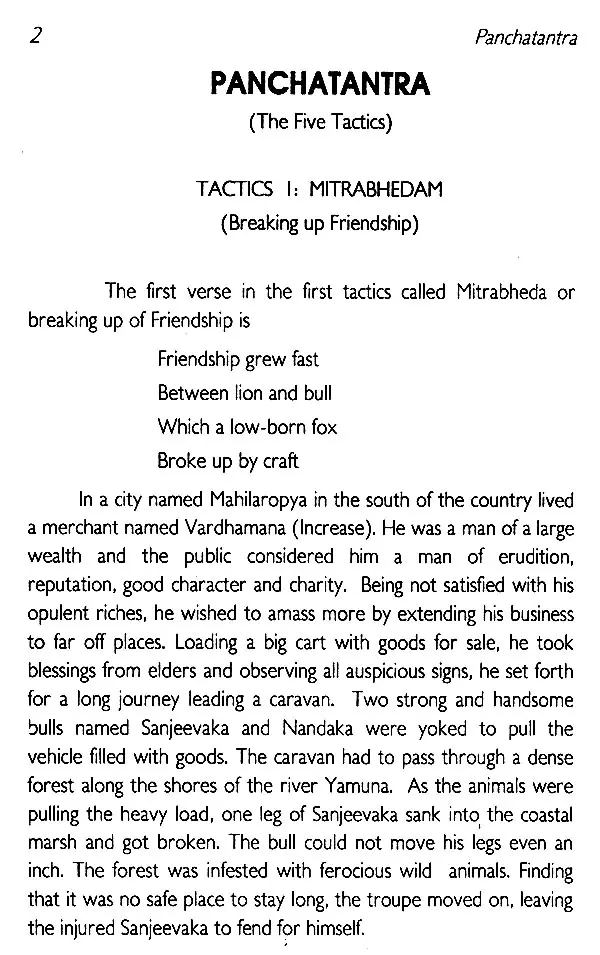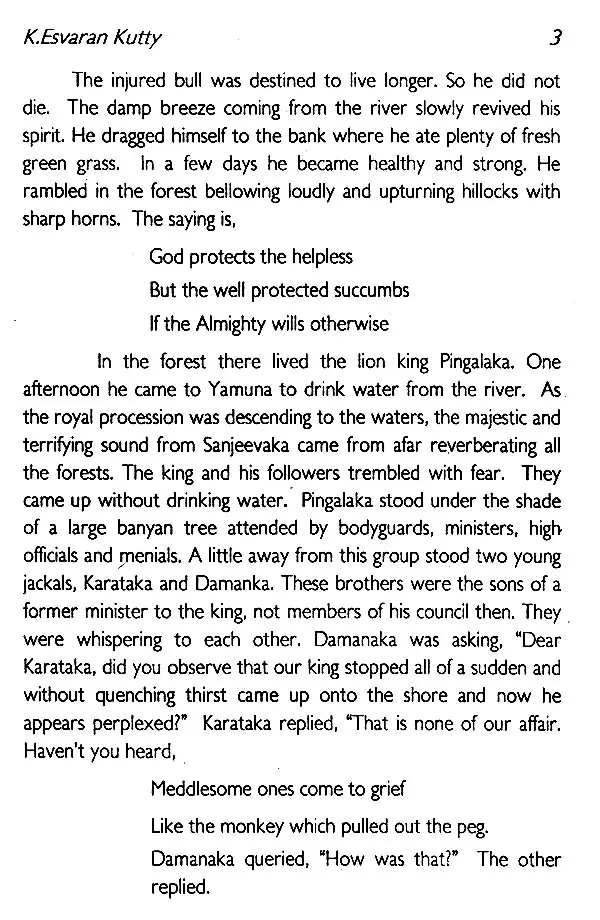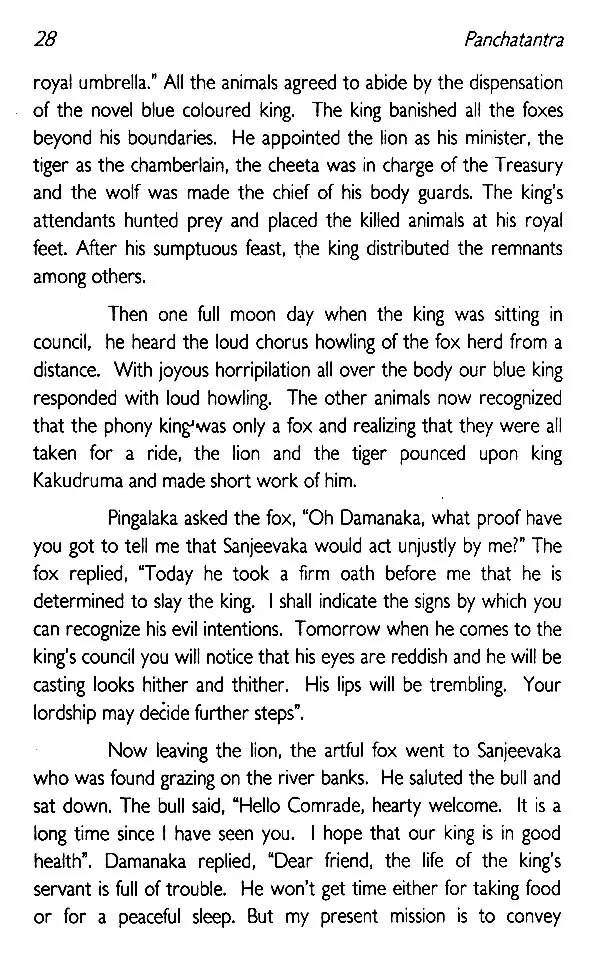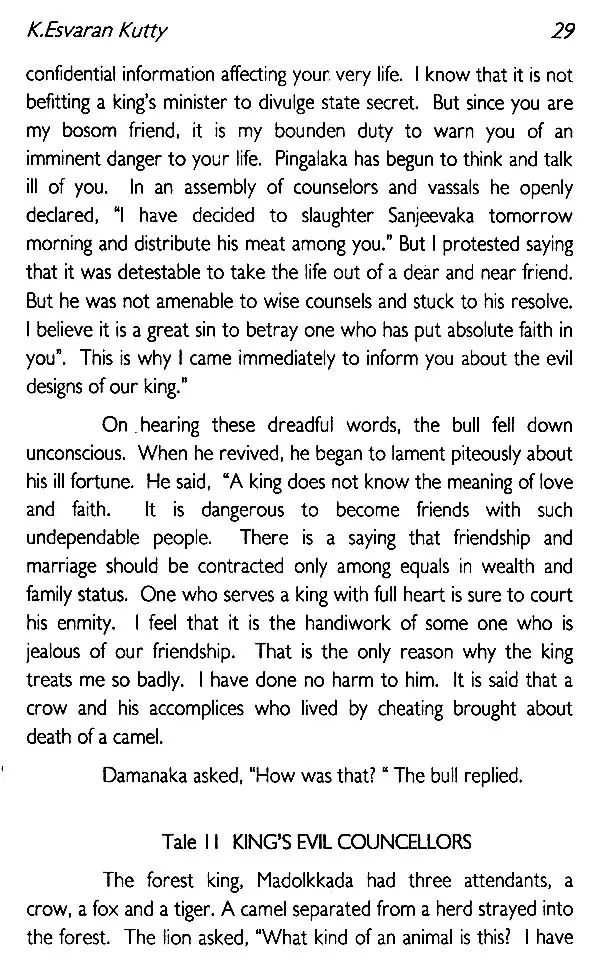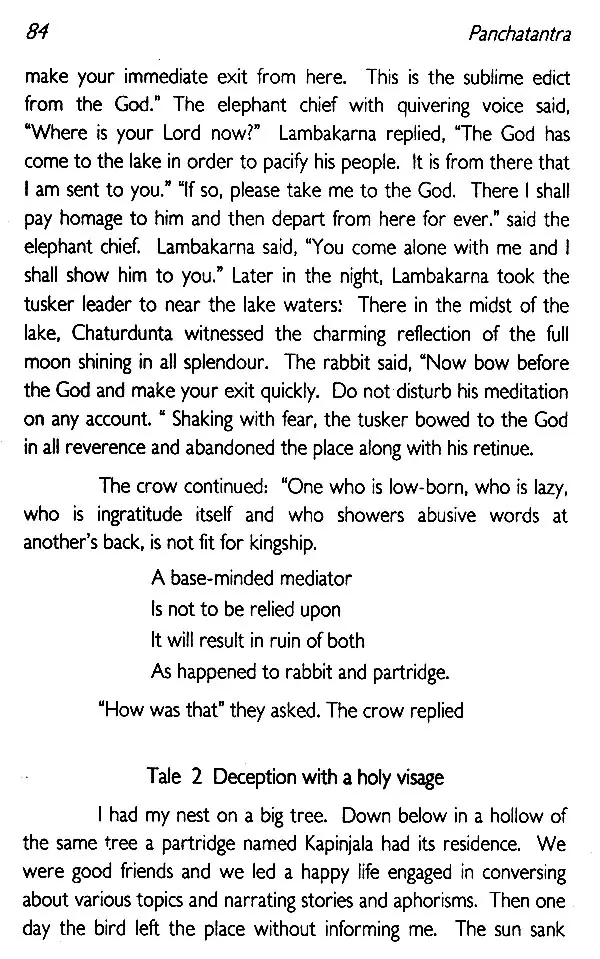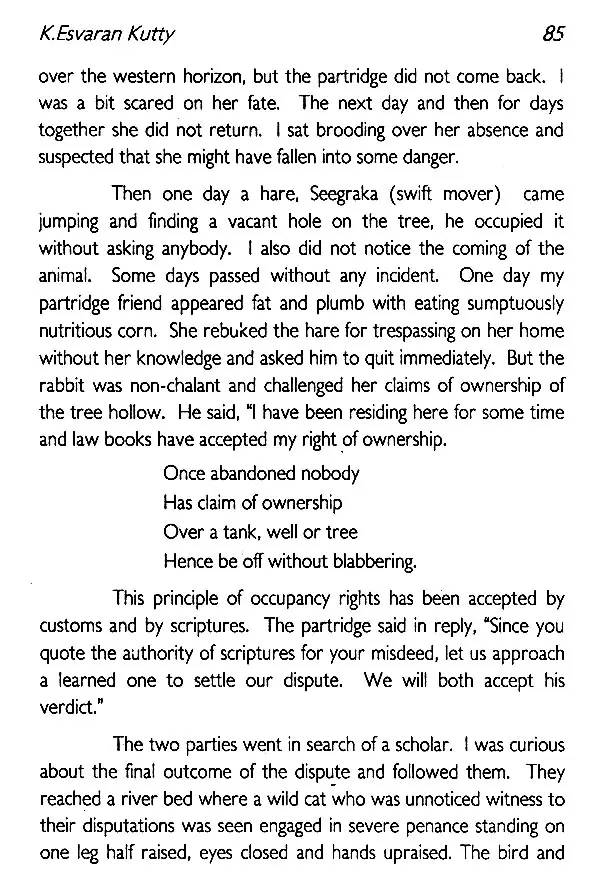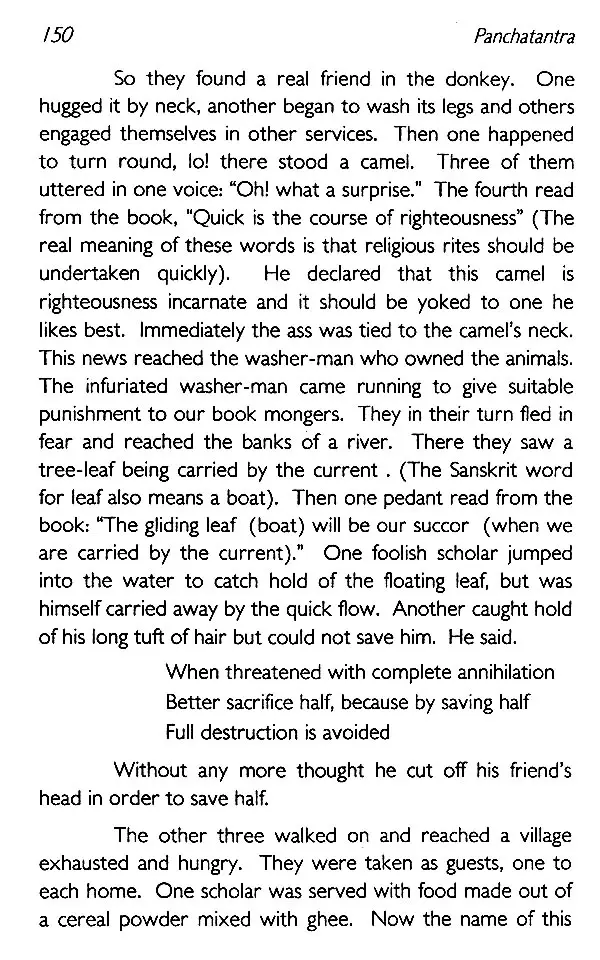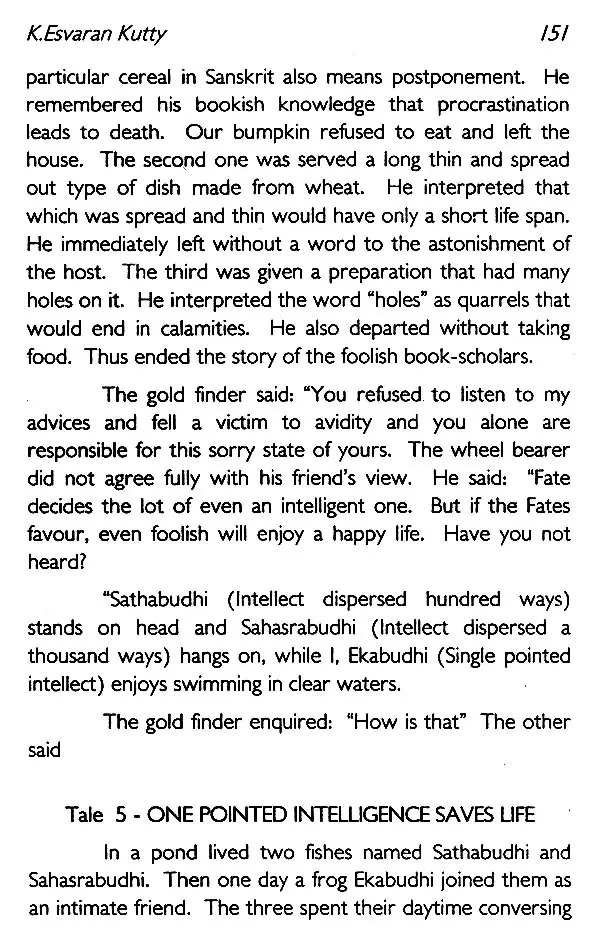
Panchatantra (English Rendering of Panchatantra Stories : The Five Tactics)
Book Specification
| Item Code: | UAF416 |
| Author: | K. Eswarankutty |
| Publisher: | Literary Circle, Jaipur |
| Language: | English |
| Edition: | 2017 |
| ISBN: | 9788181820594 |
| Pages: | 172 |
| Cover: | HARDCOVER |
| Other Details | 9.00 X 6.00 inch |
| Weight | 340 gm |
Book Description
K. Eswarankutty born in the year 1929, belongs to an aristocratic family in Thrissur, Kerala, India. He took his Master Degree in Science from The Travancore University with Statistics as major. He was employed with government of Kerala Bureau of Economics and Statistics and worked in various capacities at Kerala Veternary College Kerala Forest Research Institute etc., and retired from service in the year 1984 as Additional Director.
Malayalam translation of Geethaanjali by Rabindranath Tagore & Malayalan translation of seven plays by Rabindranath Tagore are a few of the publication to his credit.
The Present book "Panchatantra" is an English rendering of Panchatantra stories. This is Unique become it follows the exact story line of orignal work in Sanskrit.
The tales from Panchatantra are narrated to the children in India from a hoary past. The author and date of this incomparable literary work are not known. It is believed that these stories were current in India for the past five millenniums. The Sanskrit word Panchatantra means the five fold tactics or policies. The stories are told under five captions, viz. 1) Mitrabhedam or Alienation of friends, (2) Mitrapraptikam or Winning of Friends, (3) Kakolukiyam or Crows and Owls, (4) Labdapranasam or Forfeiting the Gains and (5) Aparerkshitakarakam or Ill-considered Deed. The characters delineated in these stories include brahmin priest and barber, God and Demon, recluse and courtesan, lion and fox, ass and bull, crow and owl, frog, snake and crocodile. All the characters show human emotions and speak human language. It is no wonder that children and even adults of all times and countries take absorbing interest in these stories.
The story behind these stories is equally charming and instructive. In the southern parts of the country a city called Mahilaropya was ruled by a powerful sovereign named Amarasakti (Immortal Power). He had three sons with names Vasusakti, Ugrasakthi and Anekasakti. The king was very much dejected because the princes were hostile to education. He asked his counsellors for advice regarding their education and training for making them fit to succeed him to the throne. All the ministers failed to chalk out a feasible solution to the king's dilemma. Then one in his council suggested the name of Vishnusarman, with a reputation for his knowledge in numerous sciences and competence in teaching and the princes could be entrusted to him.
The king summoned Vishnusarman and said, "Holy Sir, you should do me a favour by making the princes experts in the art of practical living. In return I shall bestow on you invaluable gifts." The incomparable teacher Vishnusarman said, "I am not one to sell good learning for any material gifts. But if I do not, in six months time, make the boys well acquainted with the art of intelligent living, I shall relinquish my good name as a teacher." The king agreed and sent his sons to live in the house of the teacher. Vishnusarman narrated to the princes a large number of stories arranged in five sections of the Panchatantra. They heard and learnt by heart the absorbing stories told by Vishnusarman. In six months time the princes were made adept in the art of intelligent living and fit for the throne of their father.
**Contents and Sample Pages**

